
In the days before the computerized world-wide-web became a reality, American society had already developed an extensive system of libraries. These buildings had extensive rows and rows of books and patrons were encouraged to leisurely browse among the volumes. In case one couldn't find the information needed, then an extensive network of libraries from all over the world was available to seek out the requested information.
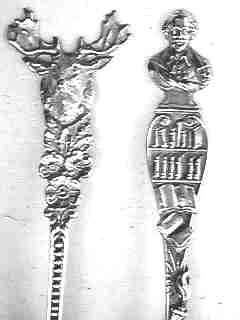
Elk finial and Shakespeare handle
The free public library system which we enjoy is partially a product of the Carnegie Foundation. Andrew Carnegie made a huge fortune in steel and then strove to give much of it away. His foundation arranged for over 1600 free standing library buildings to be built. His money was not given gratis, however. Every community receiving funds to build a library was required to make arrangements for the purchase of books and to hire librarians on an on-going basis.
 Warder Library,
Springfield, Ohio
Warder Library,
Springfield, Ohio
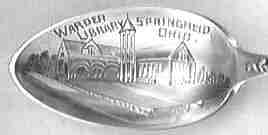
In case you would like to learn more about spoons or libraries than the WWW can provide, you are encouraged to use the "old fashioned" approach and use the facilities of your local library. Believe it or not, the average library still contains better cataloged and more usable information than the WWW.
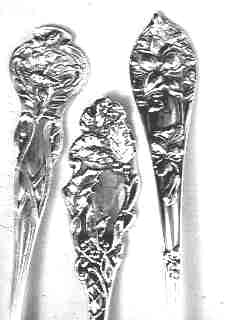
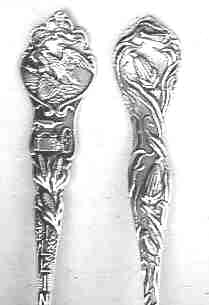
Samples of handles found on engraved library spoons
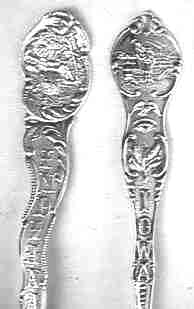
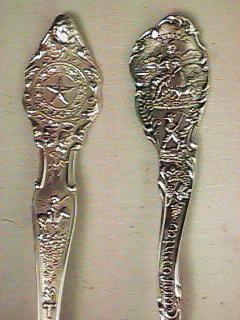
Samples of state handles on engraved library spoons
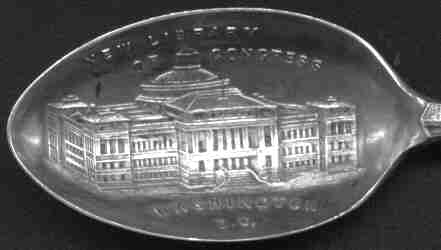
The New Library of Congress, Washington D.C. (embossed)
The opening of a public library in a community was the cause for great celebration. A few spoons would sometimes be hand engraved with a picture of the new library.

Engraved library from Redlands, Ca. with an enameled orange blossom stem
Return to Spoon World Index